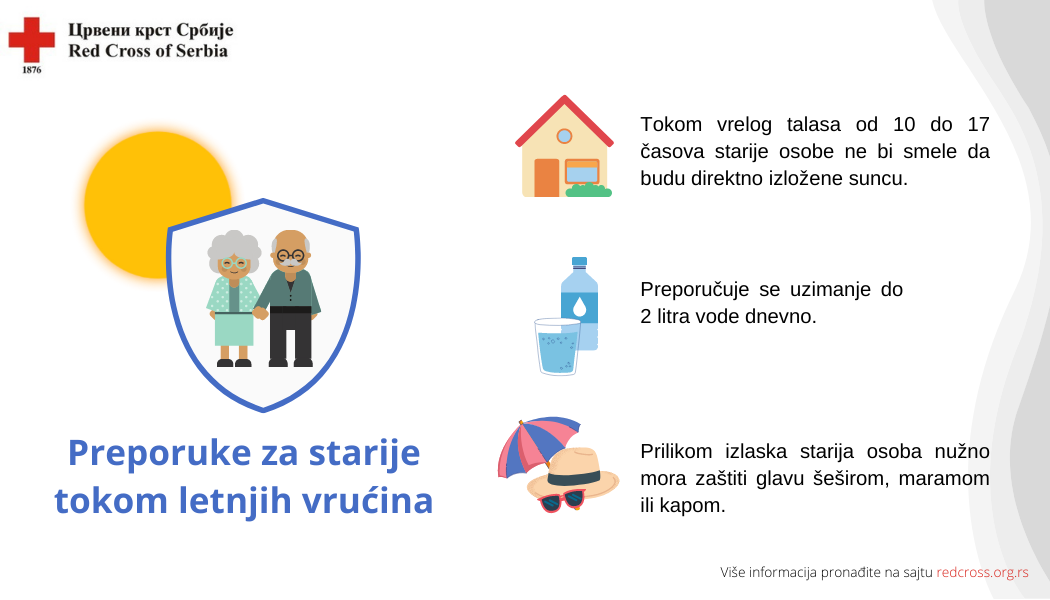Recommendations for older persons during summer heatwave

Recommendations for older persons during summer heatwave
- Persons aged 65 years and over are at increased risk of heat-related illnesses and need special care in hot weather.
- Risk factors include living alone, chronic medical problems and certain medications.
- It is advised to take steps to prevent heat stress on days when the temperature is predicted to rise above 30°C or so.
Heat stress and older people: https://www.betterhealth.vic.gov.au/health/HealthyLiving/heat-stress-and-older-people
Factors that increase the risk of heat stress in older persons include:
- Self-care problems – some older persons are frail or have reduced mobility or mental illness. These factors make it difficult for the person to take adequate care in hot weather.
- Living alone – there is no one to take care of the person if the person ignores symptoms.
- Physical changes – the ageing body does not cope with sudden stresses as quickly as a younger body. For example, on hot days, older persons do not produce sweat to cool the body as efficiently as younger persons.
- Chronic medical problems – older persons are more likely to have chronic medical problems. Certain conditions make the body more vulnerable to heat stress.
- Medications – older persons with chronic medical problems usually take medications on a regular basis. Some medications can hinder the body’s ability to regulate temperature.
- Kidney conditions – those who take medications for kidney problems, need to talk to their doctor before increasing the amount of fluid they drink.
It is recommended that during the heatwave older persons should stay out of the sun at least between 10 in the morning and 5 in the afternoon. This especially goes for chronical patients, people with heart conditions or diabetes patients. If the older person absolutely has to leave their home during the heatwave, it is recommended to do it in early morning or later evening hours.
During the time in the sun the head must be protected with a hat, cap or scarf.
For older persons with mobility difficulties it is mandatory to periodically air the room they are in, to adjust the air conditioning system temperature correctly (the temperature difference between indoors and outdoors should not exceed 70 to 10 degrees), to draw the curtains on the windows and maintain the room hygiene.
If the person uses a wheelchair, a walker or other mobility aids made of metal, they should be kept in the shade as to avoid sunlight and potentially cause burns.
It is recommended to drink at least two litres of non-carbonated water per day which amounts to approximately eight glasses. Excessively cold water should be avoided as it may cause cramps. Consulting a physician is mandatory if the person is on medication that affects excretion of fluids.
It is recommended to eat seasonal fruits and vegetables. Cool dishes and salads will help maintain one’s organism hydrated and they also do not demand using the oven or stove which contributes to the apartment being somewhat cooler. It is recommended to have several smaller meals during the day and to avoid deep fried, fried, sweet, salty or spicy meals.
Regular visits to the physician should be paid, the prescribed therapy should be regularly taken and the blood pressure should be checked with higher frequency especially during hot, humid days.
Personal hygiene is very important – using tepid water is recommended.
Headache, nausea and vertigo are alarming symptoms – they mean a physician should be visited as soon as possible.
Family members, relatives, friends, neighbours and volunteers should increase the frequency of contacting the older person during hot summer days (at minimum two times per day).

